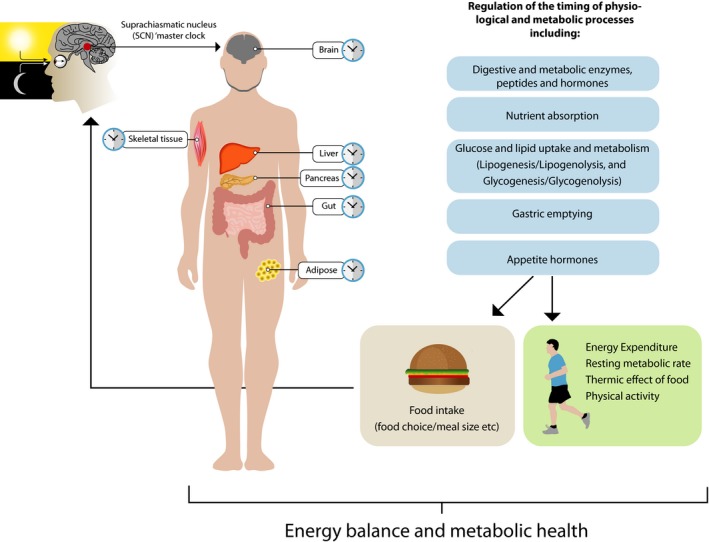I called Dr. Mike Milburn this Monday for our regular monthly conversation, and after trading observations about the length of the days (longer) and the activity of the birds (heightened), we had a wide-ranging discussion about the benefits of healthy eating.
We touched on a few things we’d covered before — for instance, on the subject of just what constitutes “healthy” eating, Milburn ruled out salads consisting of “iceberg lettuce, tomatoes and cucumber and three or four hundred calories of oil on top” and chicken, a subject we’d explored at length in a previous conversation during which I discovered that chicken today has 10 times the fat and twice the calories it had 100 years ago.
(He would also, I am sure, have ruled out the gluten-free bagel with “light” cream cheese I’d eaten just before we spoke, which is why I didn’t mention it to him.)
I had begun by asking about how eating well can help prevent or control chronic diseases and the answer really boils down to this: eating well keeps you from becoming so overweight that you increase your risk of developing health problems like heart disease, diabetes and high blood pressure.
Real food is more nutritious and more filling than processed foods (like gluten-free bagels and “light” cream cheese), therefore you eat less of it, and therefore you are less likely to gain excess weight. It’s not about changing how much you eat, says Milburn, it’s about changing what you eat.
But also — and this was knew to me — when you eat.
Research into what has come to be known as “chrono-nutrition,” while still ongoing, suggests, says Milburn, that:
If you feed people the same calories early in the day compared to later in the day, particularly at night, at night the way our genes work…is we will tend to store the energy as fat, whereas in the morning, or just earlier in the day, the body uses more energy to process the food, so the same calories end up not causing the same effect on your weight.
In fact, the UK’s Medical Research Council is currently funding something called “The Big Breakfast Study,” led by researchers at the University of Aberdeen, who note that:
The UK has been reported to have one of the highest evening energy intakes, with the proportion of daily energy intake increasing gradually across the day and dinner providing on average 40% of daily calories (Almoosawi et al. 2016). Similar patterns of increasing energy intake over the day, albeit with slightly smaller dinner intakes of approximately 33%–34%, have been reported across a number of other nations, including the US, Canada, Germany, Denmark, The Netherlands and Belgium (Almoosawi et al. 2016). To date, surprisingly little attention has been paid to the importance of time of day on the nutritional response or energy balance.
Milburn pointed out how different this eating pattern is compared to our past approach to food:
[I]f you think about before electricity came along, it was dark, you know, even this time of year, it’s dark at 6 o’clock and you might have [had] a little candle or something or a fire but you’re not sitting around gorging yourself with food.
I agreed, noting that you wouldn’t really even have been able to see what you were eating. He continued:
Now, especially with the advent of TV and people binge-watching TV and the ubiquitous commercials with all kinds of food that probably makes you hungry, and then you have this ultra-processed snack food and legions of dietitians [who] say everything’s okay as long as it’s in moderation.
(Milburn doesn’t agree with this notion that everything is okay in “moderation.” He says it fails to recognize how addictive processed foods can be and how bad people are at estimating how much of them they’ve consumed. I tend to agree with him.)
The science has to do with our biological clocks, as the researchers behind the Big Breakfast Study explain:
A growing body of evidence highlights the importance of the biological clock as a modulator of energy balance and metabolism. Recent studies in humans have shown that ingested calories are apparently utilised more efficiently in the morning than in the evening and this is manifest through improved weight loss, even under iso‐energetic calorie intake.
The examples of this “growing body of evidence” the researchers cite are really interesting (like a study that showed that people who work nights and sleep during the day are more prone to weight gain). What’s been lacking, according to the Big Breakfast people, is a randomized, controlled crossover study comparing large breakfast meals vs. large evening meals, and that’s a gap the Big Breakfast Study intends to fill.
Perhaps, as Milburn says, the saying, “Breakfast like a king, lunch like a prince, dine like a pauper” might prove to have a sound basis in science.
As always, I’ll give the final word to Milburn, courtesy of this video by friend-of-the-Spectator Madeline Yakimchuk:
Dr. Michael P. Milburn (BSc, MSc, PhD, DipAc, DAc) has a background in science, training in complementary medicine, and two decades of experience with alternative approaches to healthcare. In his clinical work, he finds individualized solutions to common chronic health problems, incorporating Tai Chi, Qi Gon, nutrition, cooking, acupuncture and herbal medicine.
Featured image from The Big Breakfast Study via Wiley Nutrition Bulletin









